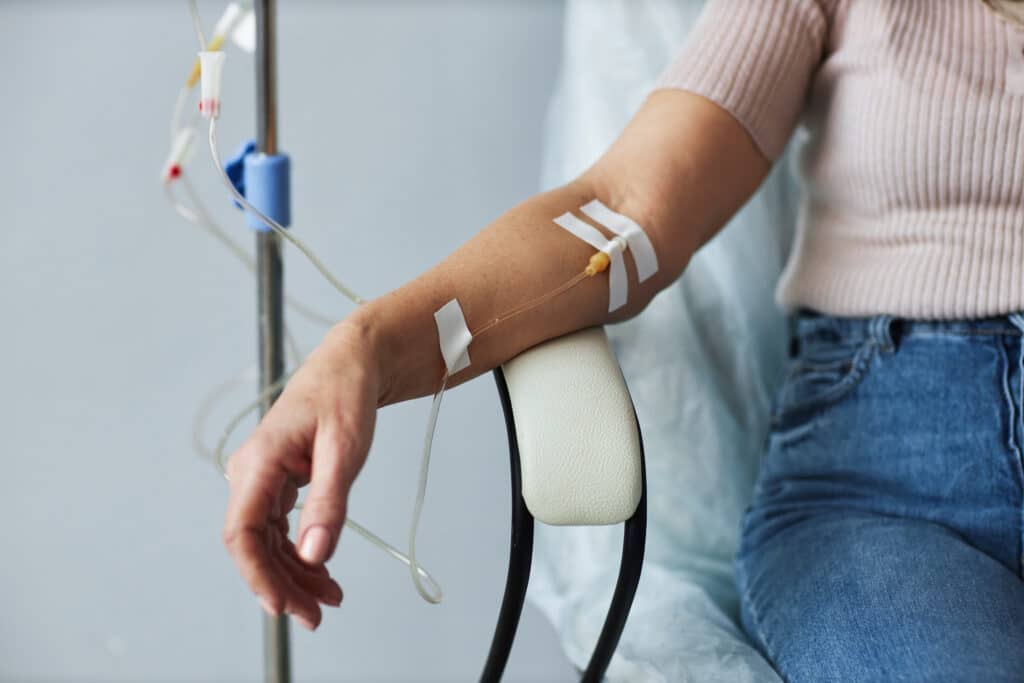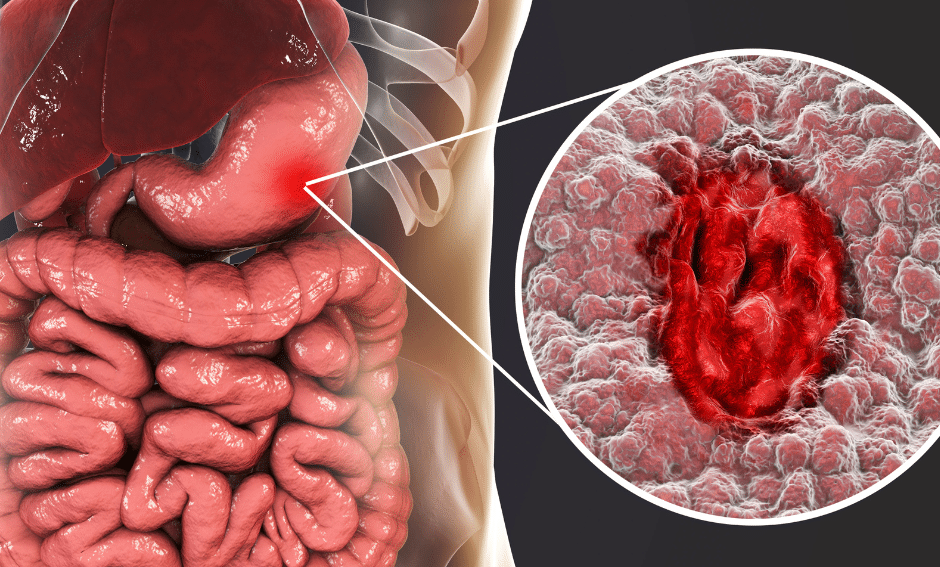March 2022 is Colorectal Cancer Awareness Month

March is National Colorectal Cancer Awareness Month, and at Digestive Healthcare Center, we want our patients to be informed about this disease, screening techniques, and how you can get involved to spread awareness and help keep yourself and those around you healthy. Every March (and all year long!), patients, survivors, and caregivers are encouraged to share their stories to raise awareness, as many adults in the United States who should have been screened for colorectal cancer have not yet been screened. Keep reading to learn more about colorectal cancer and this important awareness month from DHC.
What is the Goal of Colorectal Cancer Awareness Month?
March was officially dedicated as Colorectal Cancer Awareness Month in February 2000 by President Bill Clinton. Involvement in this awareness month has only grown over the years, with those affected by this disease rallying together to spread awareness and information. The organization Fight Colorectal Cancer says that during March and throughout the year, they fight for more research, screening, treatment options, and lives saved. Similar organizations fight for the same goal because awareness is key to screening, which is key to detecting and even preventing colorectal cancer.
Who is Affected by Colorectal Cancer?
Although many people believe that colorectal cancer only affects older adults, the disease is on the rise in younger adults, and according to Fight Colorectal Cancer, it is expected to be the number 1 cancer killer for people 20 to 49 years old by 2030. With that being said, the disease is still more common in adults over 50 years old. The risk is greater for those with a first-degree relative with colorectal cancer compared to those with no family history of the disease. Other factors that can increase a person’s risk include a personal history of colorectal polyps or cancer, certain inherited syndromes, smoking and alcohol use, and a sedentary lifestyle. Those with Inflammatory Bowel Disease, such as ulcerative colitis or Crohn’s disease, are also at a higher risk for colorectal cancer and should be screened more often.
Why is Colorectal Cancer Screening So Important?
Cancer in the colon or rectum most often begins as a polyp on the inner lining that becomes cancerous over time, often over several years. The goal of colorectal cancer screening is to identify and remove polyps in their beginning stages so that they never have a chance to turn into cancer. According to the American Cancer Society, colorectal cancer has a 90% survival rate when found and treated early. Unfortunately, many colorectal cancers are detected after they have already spread. Regular screening, scheduled more often for those with certain risk factors, is crucial to detecting this disease early so the right treatment methods can be put in place. There are many screening options for colorectal cancer, with colonoscopy being the gold standard.
Colonoscopy in NJ at Digestive Healthcare Center
Colonoscopy is the only screening that detects and prevents cancer and is the chosen screening for those with certain risk factors. During the procedure, your gastroenterologist will examine the lining of the colon for polyps using a flexible tube with a camera attached. Biopsies can be taken during the procedure, and the removal of polyps does not cause any pain. Following the proper preparation steps before your colonoscopy is crucial so that your doctor can clearly visualize the colon. Preparation for colonoscopy usually involves the consumption of a special cleansing solution, along with a clear liquid diet the day before your procedure. The American Cancer Society recommends that average-risk adults begin screening at age 45 and continue regular screening through age 75. Those with additional risk factors should begin screening earlier and may need to be screened more frequently. Speak to your doctor about when you should be screened. In addition to screening, colonoscopies are used when someone is experiencing symptoms of a wide range of digestive conditions, as this procedure can also detect IBD, hemorrhoids, and more.
What is Cologuard?
Cologuard is a non-invasive screening test for colorectal cancer. The test looks for signs of cancer in a person’s stool, such as microscopic blood and altered DNA. A test kit must be prescribed by your doctor. Your sample is then mailed to a lab to be analyzed. If any red flags are noted, you will need to schedule a colonoscopy. Although Cologuard is a great step forward, it is designed to detect, and not prevent, colorectal cancer, unlike a colonoscopy which can accomplish both goals. The test can also produce both false positives and false negatives.
Are There Any Other Colorectal Cancer Screening Options in NJ?
Other screening options for colorectal cancer in NJ include:
- CT Colonography (Virtual Colonoscopy) – a test that uses special X-ray equipment to produce images of the colon and rectum from outside the body.
- Flexible Sigmoidoscopy – a similar test to a colonoscopy, which examines the rectum and lower third of the colon only.
- Stool Tests – tests that look for possible signs of polyps or cancer in the stool. These tests include the guaiac-based fecal occult blood test (gFOBT), fecal immunochemical test (FIT), and stool DNA tests.
How Can I Get Involved During Colorectal Cancer Awareness Month?
There are many ways you can get involved during Colorectal Cancer Awareness Month to benefit your health and the health of those around you. This includes simply talking about colorectal cancer and encouraging those around you to get screened! Those who have been affected by colorectal cancer are encouraged to share their stories both in-person and online to raise awareness and encourage those of all ages to be conscious about their digestive health. Hosting an awareness event in your community is another great way to spread the word and band together with others who have been affected by colorectal cancer or who want to make a change.
Comprehensive Digestive Care and Colorectal Cancer Screening in New Jersey at DHC
At Digestive Healthcare Center, we are proud to support the gastrointestinal health of all of our patients and those throughout New Jersey by providing a wide range of digestive health services and procedures at our offices in Hillsborough and Somerville. We perform colonoscopies at our Hillsborough office and surgical center and provide all of the information you need to properly prepare while also answering any questions you may have about the process. Being informed is the best way to stay on top of your health, no matter what digestive condition you may experience. To learn more about the care we provide or to schedule an appointment with a gastroenterologist near you, please contact DHC today.
Make an Appointment for Comprehensive Digestive Care in NJ
At Digestive Healthcare Center, we want each patient at our three offices in New Jersey to feel confident about their digestive health. We encourage you to contact us today to make an appointment with one of our expert gastroenterologists – don’t wait to start putting your digestive health first!
Recent Blogs
Learn more about all things digestive health and wellness by checking out our recent gastroenterology blogs.

Infusion therapy has become a vital treatment option for individuals with Crohn’s disease, offering relief when traditional medications may fall short. This method delivers medication directly into the bloodstream, providing quicker and more targeted effects to help manage inflammation, reduce symptoms, and improve quality of life. For those with moderate to severe Crohn’s disease, infusion […]

The Advancement of Ulcerative Colitis Treatment Ulcerative colitis (UC) is a chronic inflammatory bowel disease (IBD) that affects the lining of the colon and rectum. Those diagnosed with UC often experience flare-ups that can significantly impact their quality of life. Fortunately, advancements in medical treatment have made managing this condition more achievable. One option is […]

Diverticular disease and diverticulitis are related digestive health conditions that affect the large intestine (colon). With diverticular disease, small, bulging pockets develop on the lining of the colon. When these pockets become inflamed or infected, the condition is called diverticulitis. They are very common – especially after age 40 – and rarely cause problems. At […]
























